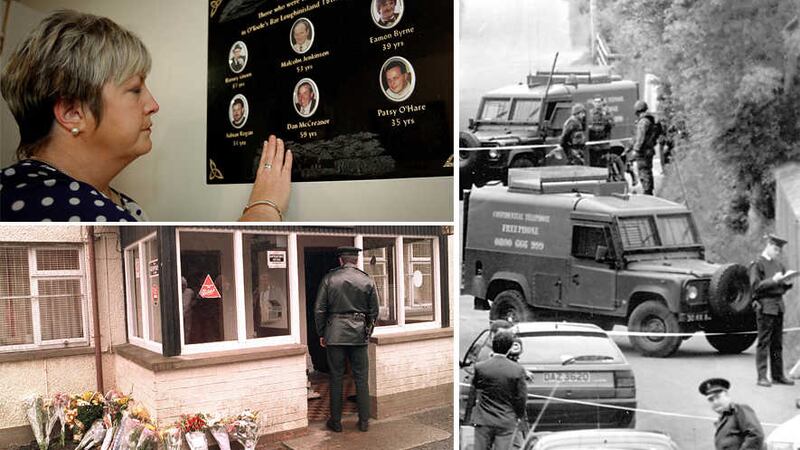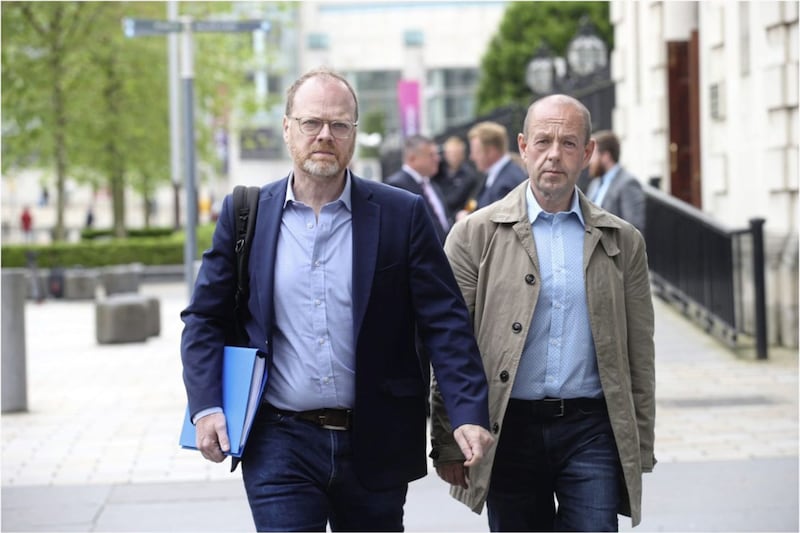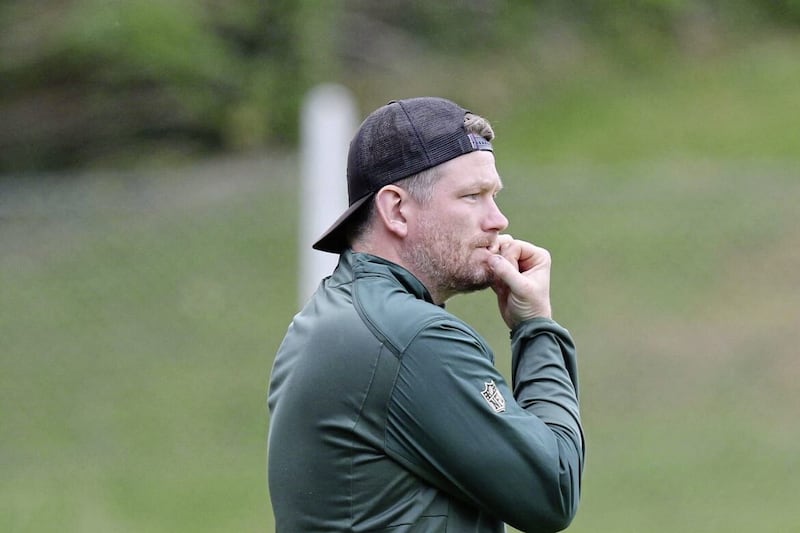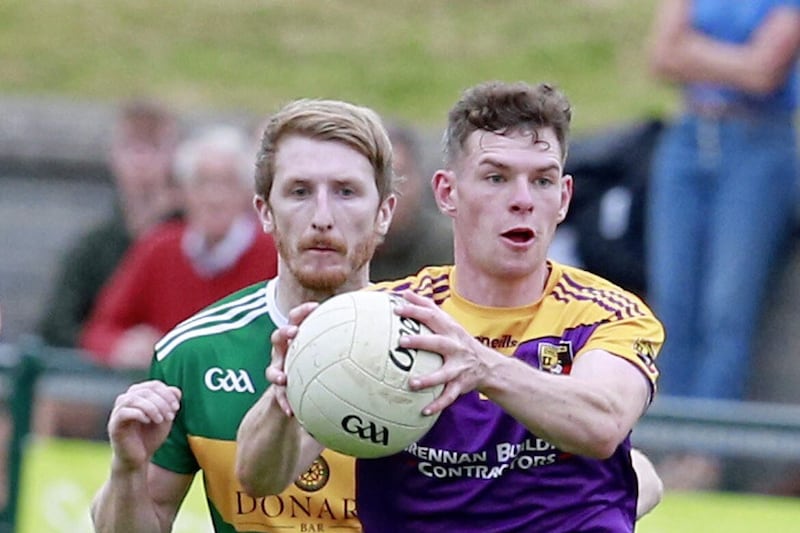Direct collusion between RUC Special Branch and members of a UVF gang prevented the killers of six men, gunned down in a Co Down bar 22-years-ago, being brought to justice, it has been revealed.
Two of the weapons used in the attack on the Heights Bar had been brought into Northern Ireland by police informants at the most senior level within loyalism.
As well as the attack in Loughinisland in 1994 the automatic weapons had been used in at least 70 other murders or attempted murders, the Police Ombudsman Dr Michael Maguire revealed.
See the Ombudsman's full report
The policing watchdog also discovered that one person initially suspected of involvement in the attack was a police informer at the time.
Speaking at the launch of a lengthy investigation into police handling of the attack, that took place as patrons of the bar watched a World Cup football match between Ireland and Italy, Dr Maguire confirmed there had been police collusion with those involved in the attack.
"Prior to the shootings in Loughinisland, there were a series of terrorist attacks which police should have recognised as the escalating activities of a small but ruthless UVF unit operating in south Down.
"On occasions there was a failure to pass on relevant information to the detectives investigating these incidents in order to protect informants", said Dr Maguire.
The report also reveals that RUC Special Branch continued to engage in a "relationship" with sources they identified as likely to have been involved at some level with the Loughinisland attack.
The damning 159-page report has raised serious questions about not just the attack on the Heights Bar but the behaviour of special branch who were shown to prioritise the protection of informants over serious criminal investigations.
While Dr Maguire said the report must be considered in the context of that time, and the fact that legislation currently in place in relation to the handling of informants did not exist, he said that alone does not explain the failings in the investigation.
"The failure to bring the killers to justice cannot be explained solely by the problems with the investigation.
"When viewed collectively, I have no hesitation in saying collusion was significant feature of the Loughinisland murders," Dr Maguire added.
The investigation shows instances with police did not ask informants for information about serious crime and in instances when informers volunteered such information it was not acted on.
The ombudsman also looked at the role of former British army agent Brian Nelson played in bringing weapons into Northern Ireland in 1985.
When the weapons did arrive in Northern Ireland three years later special branch withheld information from detectives that could have helped police seize the guns. A farmhouse where the guns were temporarily stored belonged to an RUC reservist, James Mitchell, who had been convicted of terrorist offences in 1980.
"I find no logical reason why police failed to identify this property as a possible hide for these weapons", the ombudsman said.
Dr Maguire said that informants involved in the gun running were protected from police investigation.
"Despite being implicated in the importation of these weapons, senior members of the UVF, UDA and Ulster Resistance were not subject to police investigation".
"Given the gravity of the conspiracy and the impact it had on the lives of numerous citizens, this decision has proven in my view to be indefensible, said Dr Maguire.
The assault rifle used in the attack and brought into Northern Ireland in 1987 were used in the murder of Joseph Reynolds in 1992 in east Belfast.
A second weapon found near the rifle after the Loughinisland attack, browning pistol, and which also came from the shipment was previously used in the murder of Martin Lavery on the Crumlin Road in north Belfast in December 1992.
PSNI Chief Constable George Hamilton said those officers involved in collusion should be held to account.
Mr Hamilton said he accepted the report's findings, acknowledging that it made for uncomfortable reading.
"The Police Service of Northern Ireland fully supports the Office of the Police Ombudsman for Northern Ireland," he said.
"It is an essential part of the mechanisms by which the PSNI can be held to account and, as such, I accept his report and findings into the brutal attack carried out at the Heights Bar, Loughinisland, on 18 June 1994.
"In 2011, we accepted the findings of the previous Poni (Police Ombudsman of Northern Ireland) report into the murders and conducted a further review of the case as a result. We apologised to the families at that time and I offer my sincere apologies to them once again today, for both the investigative failings and that collusion was a significant feature of the Loughinisland murders.
"This report makes uncomfortable reading, particularly in relation to the alleged actions of police officers at the time. The Ombudsman has stated that collusion was a feature of these murders in that there were both wilful and passive acts carried out by police officers. This is totally unacceptable and those responsible should be held accountable.
"I want to reassure the families and the public that I have co-operated fully with the Ombudsman and I will continue to do so if he determines to take this further. It would therefore be inappropriate for me to comment in detail, pending the outcome of any potential further criminal investigation by the Ombudsman on this matter.
"These were appalling murders carried out by those with evil intent and I am very aware of the hurt and anger felt by the families of those killed and those injured. The PSNI remains firmly committed to apprehending those responsible for these murders and appeal to the community for information to allow us to do so."








